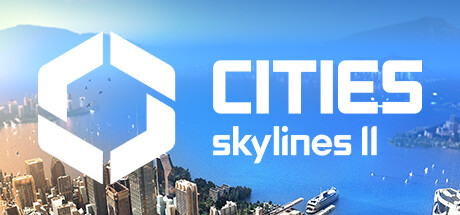Introduction
Right! So the time has come to lift the lid off of the modding interface and its backing service.
As many of you know, Paradox has been running our own mods backend for years, inventively named Paradox Mods. As a matter of fact, the first game that we hosted mods for was the Xbox version of Cities: Skylines I.
In order to give players on all platforms the same possibilities, PC and console alike, the Cities: Skylines II team has chosen to use Paradox Mods to officially host mods for the game. Now, the discerning reader might be wondering what that means for players and how they interact with mods. Read on!
The player experience
As we have seen in other titles, primarily Surviving Mars, offering access to mods from inside the game itself means that many more players interact with them and more people discover the fun that comes with modding a game.
In Cities: Skylines II, the interface to Paradox Mods will be found in the game’s main menu. Have a look:

The Paradox Mods interface will allow you to discover, search and just plain browse through mods from inside the game. Additionally, our staff will highlight especially interesting, popular or unique mods for your consideration.

In common with other games that use Paradox Mods, the interface will allow you to create and manage playsets. If you have played other Paradox titles, the concept might be familiar, but if it’s new to you, playsets are basically “playlists for mods that form easily togglable experiences.” If you place a mod that has a dependency in a playset, you’ll be automatically asked if you want to add all dependencies (yes, we do resolve the entire tree of dependencies).

Of course, the in-game interface is not the only way to manage your mods: Playsets can be constructed from the Paradox Mods website as well. There, mods can be added, removed and toggled - and all of this will then be synced to your game automatically. Likewise, playsets are stored in our backend and will be replicated to all devices you happen to play the game on. And consequently: No, your carefully constructed playsets will not disappear if your computer lets out the magic smoke inside.
Mods discussions are also available directly from in-game - but the same discussions are also present on our forums, if you would rather post from a web interface. You can also find links to other (SoMe) platforms related to the mod, if pointed out by the creator.

Naturally, there are other ways to get mods than from Paradox Mods; creating them yourself for instance. Of course, the game will allow you to add local mods of any source to your playsets - Be aware that these will not be cloud-synced and will indeed be lost on catastrophic system failure.
The creator experience
Now, in order to have actual mods to play with there needs to be ways of submitting mods to the game.
You can find instructions on how to upload your map and code mods here.
And how to create them to begin with, which we’ll leave to our friends at Colossal Order to share more information about, starting tomorrow!
We can mention that, as a mod creator you can add metadata to your mod such as description, screenshots, dependencies, release notes, supported game version etc. This information can be changed at any time through the Paradox Mods website as well. If you so wish, you can also add a discussion section to your mod.


This wraps up our little teaser from the Paradox Mods team, and we're buzzing with excitement to get this out to you as soon as we’re allowed. We're all ears for your feedback because, let's face it, we're on a mission to create something of value across all platforms, blemishes and all.
Tomorrow Colossal Order is back, they will go into detail about the in-game editor where you create the actual mods that will in turn populate the Paradox Mods library!
Paradox Mods releases on the 25th of March, together with the Beach Properties Asset Pack!
